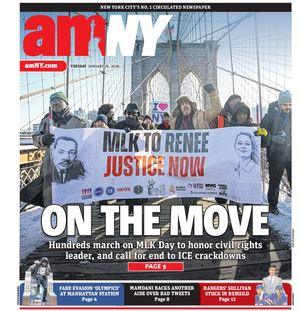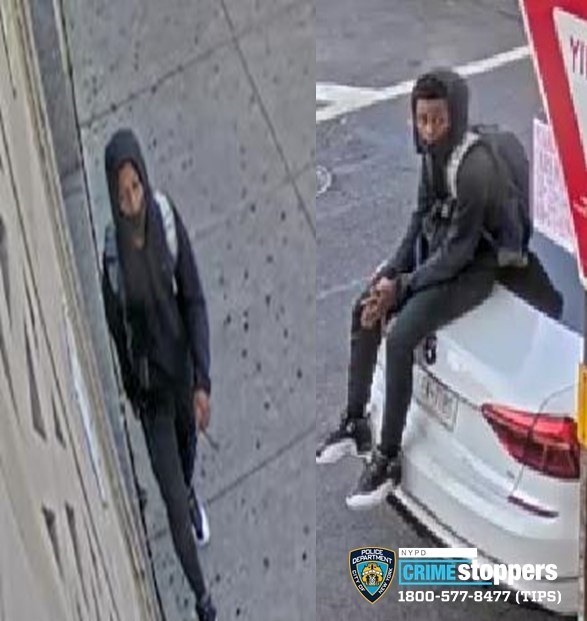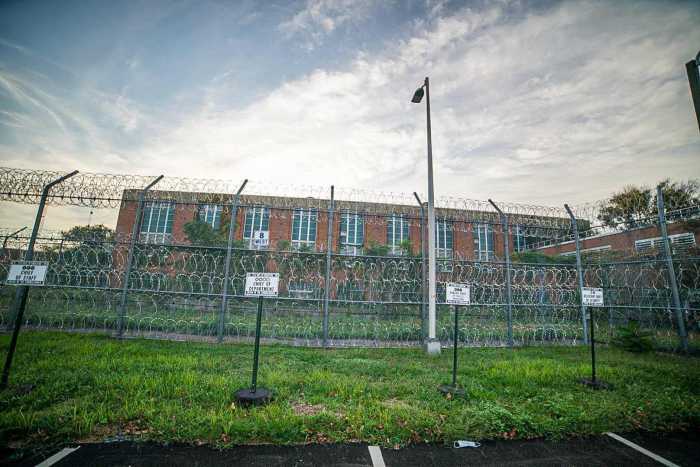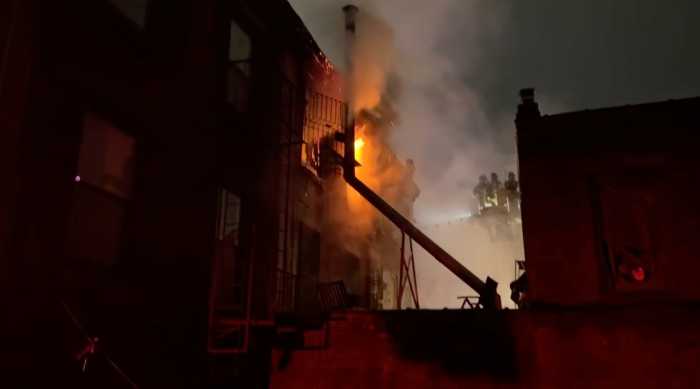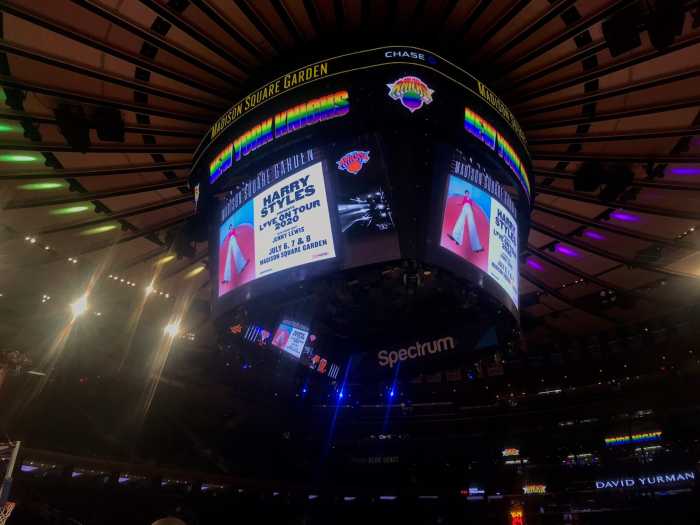Posters declaring that ICE agents need a warrant to enter will be popping up on buildings around the city, and advocates say they may help put a freeze on unlawful immigration raids.
The Association for Neighborhood and Housing Development said Tuesday that eight of its nonprofit member organizations plan to display “ICE OUT” flyers in English and Spanish at their buildings. ANHD expects to see the posters, which say U.S. Department of Immigration and Customs Enforcement officials may not enter without a judicial warrant, plastered across hundreds of residential buildings by the end of the week.
The flyers may also soon be printed in Bangla, Chinese, Urdu and Arabic, and if legal research suggests it is appropriate, added to commercial storefronts, according to Lena Afridi, the policy coordinator for equitable economic development at ANHD.
“We still have a lot to get printed,” said Afridi, noting the nonprofit developers in question collectively own about 1,000 residential buildings in the city. “We’re going to be protecting our neighbors; we’re going to be protecting each other . . . ICE is not welcome in our communities.”
Make the Road New York has received several reports of ICE agents purporting to be police to gain entry to residential buildings, according to media specialist Yatziri Tovar. Tovar said the public outreach campaign aims to clarify for residents that they have no obligation to let in ICE agents unless they have a judicial warrant.
“We hope that now that people living in those premises know their rights . . . for ICE to get the message, even before they enter the premises, that they’re not going to be allowed in there unless they have a judicial warrant,” Tovar said.
Rachael Yong Yow, a public affairs officer at ICE, did not immediately comment on the poster campaign, but noted that ICE agents identify themselves as police because it is a more widely recognized description for law enforcement.
“As a standard practice, ICE agents and officers may initially identify themselves as police during an encounter because it is the universally recognized term for law enforcement and our personnel routinely interact with individuals from around the world,” Yong Yow said in an email. “In the often dangerous law enforcement arena, being able to immediately identify yourself as law enforcement may be a life-or-death issue. However, ICE-issued uniforms and jackets also display ‘ICE’ to indicate the specific law enforcement agency being represented.”
